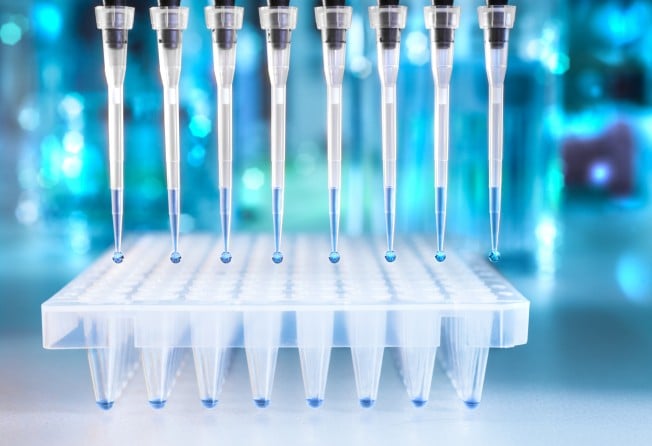Delisting risk, souring relations are hurdles for Chinese biotech firms seeking to enter US market, analyst says
- Biotech industry in China and the US ‘will be shaped’ by bilateral tensions, says scholar at University of Pennsylvania
- Several Chinese biotech and pharmaceutical firms were added to a list of companies facing possible expulsion from US exchanges in March

Chinese biotechnology companies are facing increasing scrutiny from US authorities amid heightened tensions between the two economic giants, and this is hampering their overseas expansion efforts, according to an analyst.
The risk of their stocks being delisted from the US capital markets is on the rise, as a growing number of Chinese firms find their American depositary receipts (ADRs) under threat from regulators, said Scott Moore, director of China programmes and strategic initiatives at the University of Pennsylvania.
There’s “a pretty dramatic illustration of the tensions and barriers that have arisen in recent years that, unfortunately, will continue to shape the [biotech] sector in both countries going forward,” said Moore at the Nomura Investment Forum Asia 2022.
His comments came as investors become increasingly concerned about the risk of delisting. Chinese biotech and pharmaceutical companies BeiGene, Zai Lab, HutchMed were added to a list of firms facing possible expulsion from US exchanges in March.
The provisional lineup of US-listed Chinese entities face ejection under a 2020 law because of Beijing’s refusal to allow access to their financial audits. The companies have three years to avoid delisting by complying with the auditing oversight of a US body.
It adds a hurdle for biotech firms as they look to expand into the American market amid substantial price cuts of drugs in China.
Moore pointed out that the delisting risk was not targeted at the sector, but is associated with broader regulatory changes by US authorities affecting all Chinese ADRs.
“With the delisting [threat] and [changes to] public company accounting practices and compliance rules, that’s a process that has potentially ensnared some biotech companies, but it’s not necessarily targeted toward biotech companies in any way,” he said.
China-US relations have deteriorated in recent years over trade friction, diplomatic spats and technology transfer issues. The US Securities and Exchange Commission is now eyeing dozens Chinese companies for possible delisting from American stock exchanges.
More recently, the two countries have been embroiled in debate about the origin and spread of the coronavirus pandemic, and appeared be compete with each other in the development of Covid-19 vaccines and their distribution to other nations.
Clinical trials by Chinese drug makers, meanwhile, are also facing tighter regulation in the US.
The US Food and Drug Administration (FDA) in February required Hong Kong-listed Innovent Biologics and its partner, the American pharmaceutical giant Eli Lilly, to conduct additional clinical trials of their Sintilimab injection to demonstrate its “applicability to US patients and US medical care” before the monoclonal antibody treatment can be approved for use.
Industry players believe the stricter requirements and much higher trial costs in the US will make it more difficult for smaller Chinese biopharmaceutical companies to enter the American market and expand overseas.